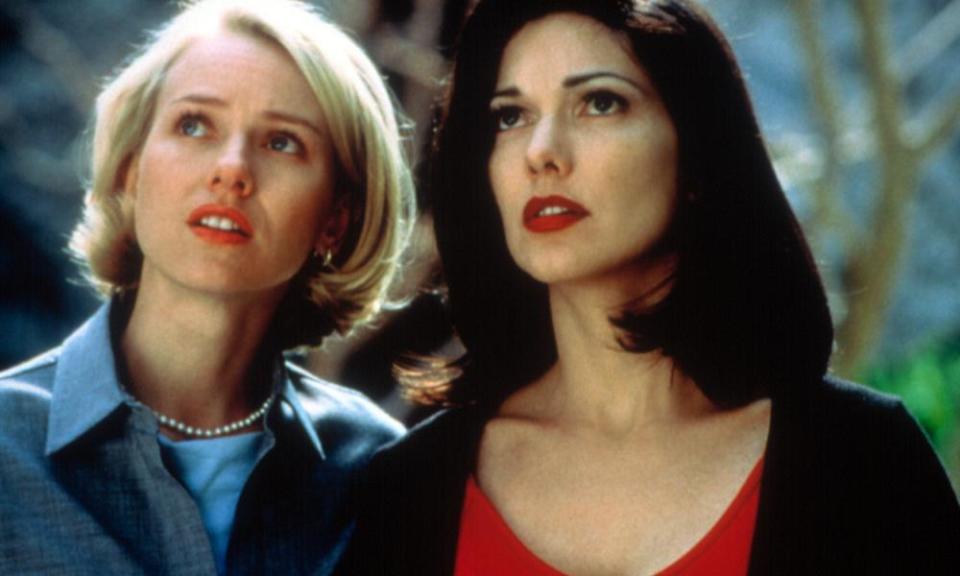Streaming: the best films about doppelgängers and shifting identities
Some films are best watched more or less by accident: stumbled upon with little foreknowledge, so we’re led through the story without a compass. Mubi’s curation model often allows for such moments of discovery: their latest exclusive release, Two/One, is a strange, slippery puzzler well suited to a blind encounter.
The debut feature from Argentinian director Juan Cabral, it’s a subtle, alluring spin on cinema’s longstanding fixation with double personalities. That genre usually hinges on twins or doppelgängers, allowing one actor to flex as showily as possible. Two/One goes another way, instead exploring the idea of two non-alike men – different in face, body, location, vocation – who nonetheless seem to share a life, perhaps even a soul.
In Canada, pro ski-jumper Kaden (Boyd Holbrook) is reaching the end of his career and facing an existential slump; across the globe, in Shanghai, businessman Khai (Song Yang) is professionally successful but starved of real human contact. When one falls aleep, the other wakes; through visual cues and narrative echoes, Cabral builds the sense that their lives are obliviously connected, each moving in rhythm to the other.
This isn’t a story that wants you to ask if both men sleep for 12 hours a day, or other such niggling questions: you have to forgo logic to succumb to its ruminative spiritual resonance. Cabral’s film-making is seductive enough to do that: he’s best known as the advertising genius behind the famous Cadbury Gorilla and Sony Bouncing Balls campaigns, so the man knows how to sell you an idea through elegant games of sound and image. There’s enough vivid, glimmering beauty here to make you briefly, forlornly wonder if your own other self is out there.
The first film that Two/One made me want to rewatch (via Curzon Home Cinema) was Krzysztof Kieslowski’s still luminous The Double Life of Veronique, which matches the doppelgänger trope to a similarly airy cosmic conceit. As two unacquainted, similarly named women in separate countries whose lives seem curiously fused in the stars, Irène Jacob’s artfully bisected performance brilliantly sustains a pair of distinct but eerily entangled personalities.
In the last film he made before switching to full-time Hollywood fare, Québécois director Denis Villeneuve made a disconcerting little entry in this subgenre called Enemy (on Amazon), a cold, crisp psycho-thriller in which Jake Gyllenhaal anxiously stalks his second self around an unforgiving urban landscape – the nature of their connection remains uncertain as the film escalates into (literally) spidery madness. It perfectly complements the bonkers, does-what-it-says-on-the-tin Roger Moore curio The Man Who Haunted Himself (Amazon again), though it’s more sleekly atmospheric.
Over on Netflix, in Nacho Vigalondo’s Colossal – among the most winningly bizarre sci-fi experiments in recent mainstream cinema – Anne Hathaway’s alcoholic writer doesn’t seem to have a double, per se, but the Godzilla-like monster raising hell far away in Seoul appears uncannily wired to her thoughts and actions. Much-vaunted in the 1990s but neglected of late, Scott McGehee and David Siegel’s Suture (on Google Play) has two allegedly identical brothers swap identities, causing havoc in their world and with our perception: for we see them as two entirely distinct actors, one black and one white. And I’ve celebrated Jordan Peele’s Us in this column before, but it can’t go unmentioned here: the relationship between its tethered yet mismatched doppelgängers opens up a raging world of post-colonial racial politics.

The gold standard (or the emerald-green one, to go by the film’s distinctive palette) of tricksy doubling on film, of course, remains Alfred Hitchcock’s Vertigo (among Netflix’s few classics), which seems to emphasise different slices and shades of dual identity every time you watch it; ditto the overlapping feminine psyches of Ingmar Bergman’s hypnotic, ever shape-shifting Persona (on Amazon), in which the existential merge somehow happens before you know it, even when you know what’s coming.
Fragments of both films were clearly on David Lynch’s mind when he made Mulholland Drive (on iTunes), proving himself the master of doubling characters with reckless disregard for time, space and sanity. That’s not the approach for high-concept king Christopher Nolan, who of course has a doubling exercise of sorts in his oeuvre: perhaps his most lavishly entertaining film, The Prestige (on iTunes), plays knotty identity games with an actual pair of magicians, though it falls down a bit when Nolan, being the director he is, has to solve his own puzzle. Two/One, too, is best when it just lets its foggy mystique be: the most haunting double-trouble films always keep something from us.
Also new on streaming and DVD
Socrates
(Peccadillo, 15)
Made on a shoestring and following a gay 15-year-old fending for himself in São Paulo after his mother’s death, Alex Moratto’s impressive, affecting debut makes a good companion piece to recent British standout Rocks as a study of children failed by the adult world.
Summerland
(Lionsgate, 12)
An easy, breezy comfort watch as summer slips away in the rearview mirror, Jessica Swale’s wartime drama about a cranky academic (an ace Gemma Arterton) thawed by the arrival of a child evacuee is attractive and absorbing, though too heavy on dewy nostalgia.
Zeroville
(Universal, 15)
James Franco has directed a catalogue of ambitious misses, but he’s never whiffed as spectacularly as in this unwatchable adaptation of Steve Erickson’s Tinseltown satire, which plays like an am-dram interpretation of Tarantino’s Once Upon a Time in Hollywood.


